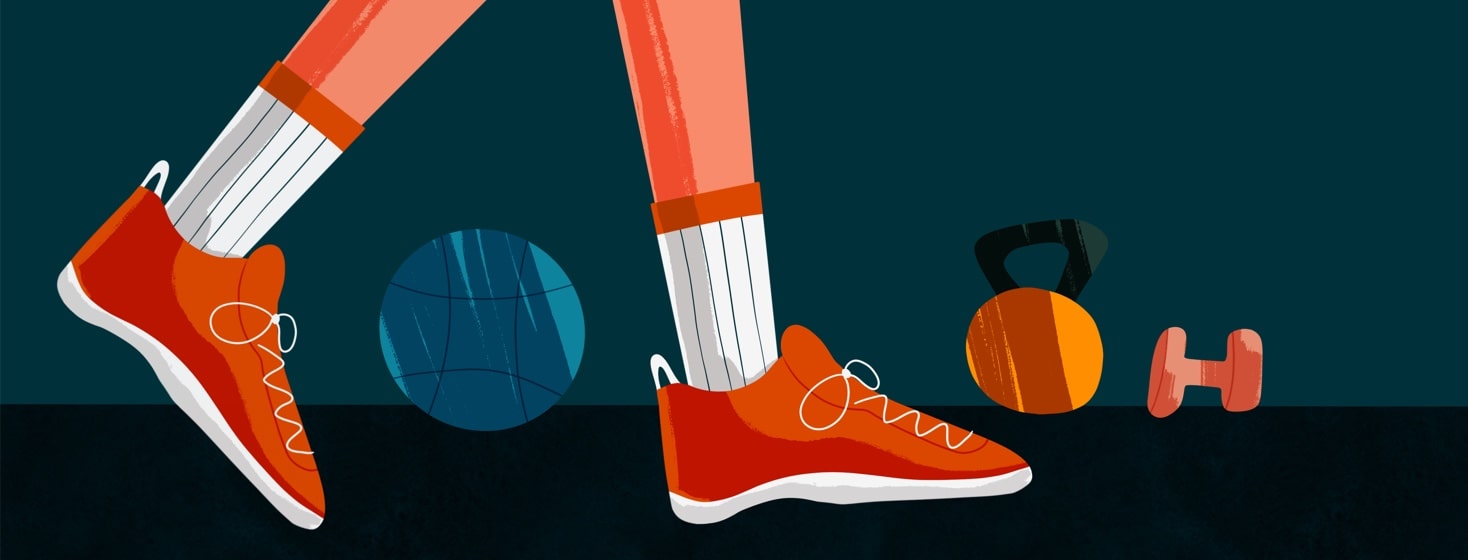Returning to exercise with Crohn's disease
Before my Crohn's diagnosis, I always enjoyed exercise. OK, I couldn't claim to be a marathon runner but I did get a buzz out of going to the gym, swimming, and a good pilates class. However, I'll admit: it's been years since I have exercised properly and my Crohn's disease is definitely at least partly to blame...
Using the bathroom during or after exercise
When I first was diagnosed with Crohn's, I started to notice that exercise can get things moving in more ways than one! I often find I go to the toilet more when I'm exercising and google tells me it is a real thing. A quick search for runner's diarrhea reveals to me it's common that exercising intensively can cause your bowels to empty themselves more frequently.
This is not ideal when I don't need any current help with that department! I've read this is because of a change of blood flow and also the additional stress on your body when you exercise intensively. I love exercise classes but the thought of needing to dash out to go to the loo in the middle of a session has left me really self-conscious over the years.
Careful with exercise after a fistula
After my fistula, I became even more cautious of exercise. I found myself frightened of sweat and obsessed with keeping things clean. I must admit, I am the kind of person who turns bright red and starts sweating after a light jog, so it doesn't take much to make me feel clammy.
Although my fistula is hopefully now healed, I still have found the scar tissue can easily be chafed by sweating or tight leggings. Although this is quick to resolve itself, it is still something I'm really conscious of; and I also struggle to find workout gear that's breathable and more loose-fitting.
Dehydration, Crohn's, and exercise
Of course, another issue with exercise and IBD can be hydration. We're already at risk of dehydration with Crohn's and with exercise, we can lose electrolytes through our sweat. If I'm having a bad belly day, the thought of going to the gym is the last thing on my mind.
Recently, Sport England released research that showed that there are still many barriers around those of us with disabilities exercising.1 Whilst research from Manchester Metropolitan University found that some people with disabilities felt anxious about their abilities in engaging in sport.2 I think I'm not alone in not wanting to exercise with a chronic condition but that doesn't mean I shouldn't try!
Exercise for both physical and mental health
I know the benefits of exercise are multiple. Not only is it good for your physical health but it can also help my mental health too. After having my little boy in May, I was referred to some gentle postnatal exercise classes as a tool for helping my postnatal anxiety; so I really am determined to make 2020 the year I return to exercise.
I'm hoping a session aimed at new moms will be a little more understanding and self-paced than returning to the gym, but next on my list is to find some comfortable clothing to exercise in. I'd love to hear your top tips for exercising with Crohn's disease. Do you find it helps your symptoms or makes them worse? Any tips for exercising without irritating my belly or my scar tissue?

Join the conversation